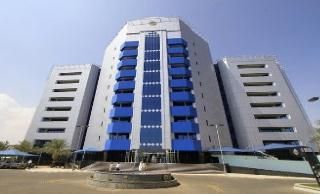Sudan central bank says devaluation was in effect prior to November
November 12, 2013 (KHARTOUM) – Sudan’s central bank on Tuesday issued a statement denying a report carried by Reuters yesterday stating that the pound has been devalued by 22.6% against the US dollar.

A central bank official, asking not to be named, told Reuters the rate had been already changed in September when the government cut fuel subsides. He did not elaborate.
But the spokesman for the Central Bank of Sudan (CBoS) Azhari al-Tayeb al-Faki that what Reuters reported is “baseless” and that these rates were in place prior to the subsidies cut.
Al-Faki noted that the official exchange rates are regularly updated on CBoS website.
A research made by Sudan Tribune showed the official exchange rate to have held since January 2013 at 4.4 pounds to the dollar up until September 25 when it changed to around 5.7.
On September 23rd, the Sudanese cabinet formally endorsed the cut in fuel subsidies by which prices of gasoline and diesel were increased by almost 100%.
State media said at the time that the cabinet also raised the US dollar exchange rate for importing purposes only to 5.7 pounds.
The Sudanese pound lost more than half its value against the US dollar in the black market since the secession of the oil-rich south in July 2011. At one point it reached 8.2 pounds to the dollar in last September compared to the official rate of 4.4.
The CBoS refuses to disclose the amount of Forex reserves it holds but a report released by the International Monetary Fund (IMF) shows it having $1.6 billion in 2013 which covers only 2 months of imports compared to $1.7 billion in 2012.
An IMF online survey published in 2011 argues that that a country must hold Forex reserves that cover 3 months of imports at a minimum.
The low level of reserves means that the government has little leverage to intervene in the market to bring down the exchange rate and cut demand in the black market.
In May of last year, CBoS allowed government-licensed Forex bureaus to determine their own rates in buying and selling currencies but within a certain range in an effort to curb the flourishing black market.
The devaluation means that Sudan will pay more to import food which is vital to plug the deficiency in local food production. It also hurt businessmen and foreign companies that desperately seek to repatriate profits abroad.
This week, Zain, Kuwait’s No. 1 telecom operator, said that its Sudan unit saw a plunge in profit for the third quarter which it blamed on foreign exchange fluctuation.
(ST)
